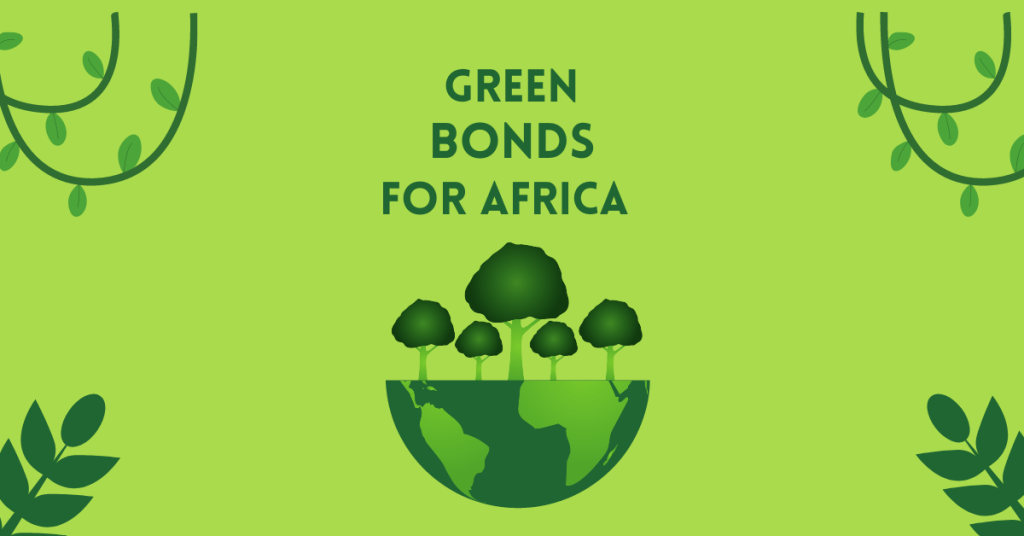- Importance of Green Finance in Africa
- The role of Green Bonds to drive infrastructure development in Africa
- Why Green Bonds are good for countries such as Kenya and Nigeria
Africa’s renewables sector is now beginning to take off, as green bonds are creating an opportunity for Africa to generate more of the finance it needs for renewable energy projects itself. Despite this, Africa is still dependent on non-African investors to purchase a significant portion of the bonds that are currently available.
In recent weeks, we have heard about the emergence of Green Bonds in Africa. Kenya has issued its first Green Bond in 2019 and Nigeria has also recently gotten on board. We will take a look at these new green finance instruments and their potential impact on African countries. In the meantime, we’ll also discuss the importance of green finance in Africa and the role that Green Bonds can play in that process. Here, we’ll take a closer look at what Green Bonds are and why they’re exciting for developing countries like Kenya and Nigeria.
Green Finance in Africa
African private and public sectors have lagged behind other emerging markets when it comes to the issuance of green bonds. But as the global market for green bonds approaches $1 trillion by 2022, the African market could soon catch up. The current lack of awareness regarding green bonds could be remedied by the adoption of sustainability-oriented strategies and the development of financial markets in Africa. Here are some reasons why African investors should consider green bonds and how they can get started.
A lack of African green bonds is largely due to the perception of market risk and the lack of familiarity with the region. The first green bond in the region was issued by Nigeria’s North South Power Company in May. The next month, Botswana issued EUR500m green bonds for solar energy development. Green bonds in Africa are increasingly becoming a mainstream source of financing, and the continent’s smaller economies should take note of this trend.
Also Read: COP 26: Scaling Africa’s green finance landscape
What are Green Bonds
Almost every African sovereign has ratified the Paris Agreement on climate change and has committed to reducing carbon dioxide emissions through national programs. Moreover, green bonds are a highly accessible and cost-effective way to raise capital for infrastructure projects that support climate change adaptation. Besides, many African nations face the highest vulnerability to climate change and need to build resilient and sustainable infrastructure. Therefore, green bonds may be the answer to these needs.
While the issuance of green bonds represents an opportunity for African cities to bridge the financing gap, it has to be done with care. Effective governance, virtuous leadership, and appropriate mechanisms are required for the process. To ensure investor confidence, countries should adopt global and national green bond standards. However, the absence of such standards poses risks to the green bond market in developing countries. Further, the market may be prone to greenwashing.
Kenya issues Africa’s first Green Bond
In a major milestone for the nation’s financial services sector, Kenya is now Africa’s first country to issue a green bond. This new green finance instrument has strengthened Kenya’s position as a regional leader in environmentally-friendly financing options and has reaffirmed Kenya’s commitment to contributing positively to national development. The first green bond was issued in October 2019 for a total amount of $4.3 million. The Kenya Securities Exchange is collaborating with the Climate Bonds Initiative, the Dutch Development Bank, and the Kenya Securities Exchange to develop the Green Bond Program. The program includes technical assistance for potential issuers, trainings for issuers, policy research, and regulation on green finance.
The Kenya Bankers Association, which champions sustainable finance practices, welcomed the issuance of the first green bond in East Africa. The Association hopes the green bond will contribute to Kenya’s transition to a green economy. The Kenyan government aims to launch a green bond programme to raise funds for public projects in the country, a move that should be celebrated and supported. However, the country’s regulatory bodies must continue to encourage the market by ensuring the government complies with all the relevant regulations, including those relating to the use of carbon offsets.
Nigeria excited about Green Bonds
The Nigerian Government is stepping up its green finance efforts and plans to issue 150 billion naira, or $415 million, in Green Bonds in the coming year. The government intends to use the funds to fund climate-sensitive and sustainable projects. According to Ahmad Salihijo, an adviser in the Ministry of Environment, the country’s first sovereign green bond is already certified. He says that Nigeria is excited about climate financing and is getting support from reputable institutions and organizations in the global green bond market.
Despite being responsible for just 0.1% of global emissions, Africa is still likely to be negatively affected by climate change if it is not adequately addressed. In addition to this, climate crises have become increasingly frequent, especially in the last few years. But despite these challenges, the continent remains enthusiastic about Green Bonds in Africa. With the support of leading institutions and governments, the issuance of Green Bonds in Nigeria will help it to meet its ambitious emissions reduction targets.
